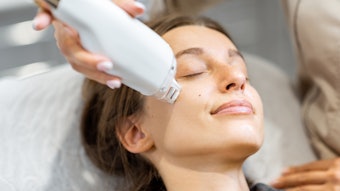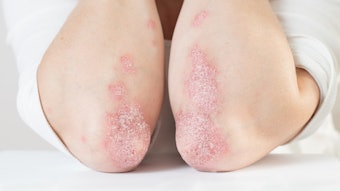More on the Legal Aspect of the Medical Spa
The following information is provided as a supplement to the article “The Legal Aspect of the Medical Spa” by Susanne S. Warfield running in the November 2007 issue of Skin Inc. magazine. To learn more about the legal and liability aspects of owning and operating a medical spa, please check out the current issue of Skin Inc. magazine.
Esthetician’s code of ethics
In addition to paying attention to the legal and liability issues that are inherent when working in a medical spa, there should also be a standard of care provided for every client who is treated, no matter the procedure—medical or otherwise. For a full rundown of the duties and responsibilities of a high-quality esthetician, see the Estheticians’ Code of Ethics at www.ncea.tv.
State regulations
In an environment of ever-changing laws and practices, it is important to stay up-to-date with your state’s legislation and regulations regarding medical spas. Find contact information for regulatory boards and licensing information for all 50 states under SkinInc.com’s Resources tab. Further information on medical state regulatory boards also can be found at www.fsmb.org and www.ama.org.
U.S. Food and Drug Administration (FDA) and federal regulations
It is also important to stay current on the federal regulations regarding the medical spa industry. As the industry becomes larger, more information will be available to the public about it, and this often prompts more legislation. Current issues include what is defined as cosmetics versus drugs versus hazardous substances, as well as the off-label uses of drugs. To read more complete information about these debates, go to www.fda.gov.
Occupational Safety and Health Administration (OSHA) Act & Hazards Communication Standard
Standards for the industry have been around since the 1990s; however, the spa industry has been slow to respond and catch up in its compliance of these standards. Although OSHA exists for the protection of the employee in the workplace, the transmission and case history of opportunistic bacteria are becoming a widespread concern for state regulators.
The American National Standards Institute (ANSI) oversees the creation, promulgation and use of thousands of guidelines that directly impact businesses in nearly every sector. ANSI also is actively engaged in accrediting programs that assess conformance to standards, including globally recognized cross-sector programs such as the ISO 9000, or quality standards, and ISO 14000, or environmental standards, management systems. OSHA has adopted many of ANSI guidelines as the requirement to meet employee safety as outlined by the Department of Labor’s Occupational Health & Safety Act. More information can be found at www.osha.gov and www.ansi.org.
The Medical Device Manufacturers Association
The Medical Device Manufacturers Association (MDMA) is a national trade association based in Washington, D.C., that represents independent manufacturers of medical devices, diagnostic products and health care information systems. The mission of the MDMA is to promote public health and improve patient care through the advocacy of innovative, research-driven medical device technology.
As medical devices are utilized in medical spas far more than in the other spa concepts, it is important to know information about the devices you are using. Organizations such as the MDMA can help keep you updated on legislation, regulations and other issues that arise with the use of medical devices. For more information, go to www.medicaldevices.org.
U.S. Department of Health and Human Services and the Health Insurance Portability and Accountability Act (HIPAA)
David Goldberg, MD, a past president of the American Society for Laser Medicine and Surgery, has stated, “There’s a perception among physicians that cosmetic laser treatments are essentially spa treatments. Therefore, confidentiality is not required to the same degree it is required in a medical office.” However, he continues that even if such treatments are performed in a spa-like environment, “The same strict rules of confidentiality are required.”
There has already been a case of an esthetician working in a medical spa who took home client records from the facility and the police were called to retrieve these confidential files. This further details the need for thorough orientation and training of all staff working in medical spas. To continue reading about these confidentiality issues, go to www.hhs.gov.
Accreditation and credentialing
According to The Joint Commission, the leading causes of reported accidents in medical spas were due to errors in communication, orientation and training, patient assessment, staffing, availability of information, and leadership.
This event-related data, reported to the commission from its accredited organizations, demonstrates the need to continue addressing serious adverse events. This data also supports the importance of establishing national patient and client safety goals and focusing energies on addressing serious errors within health care organizations. By identifying causes, trends, settings and outcomes of events, critical information can be shared and used to protect the public in preventing future adverse occurrences. More information on this topic can be found at www.jointcommission.org.
The Legal Aspect of a Medical Spa
May 13th, 2008










